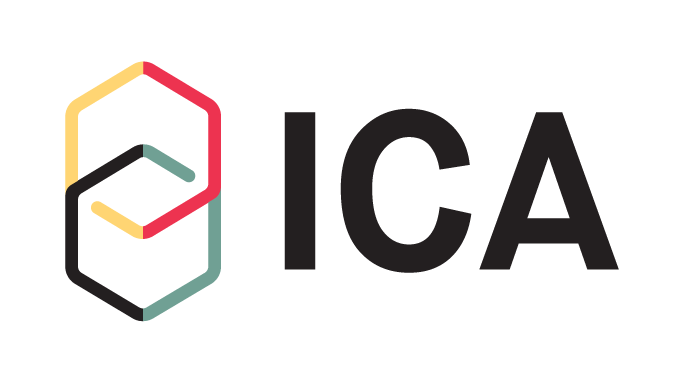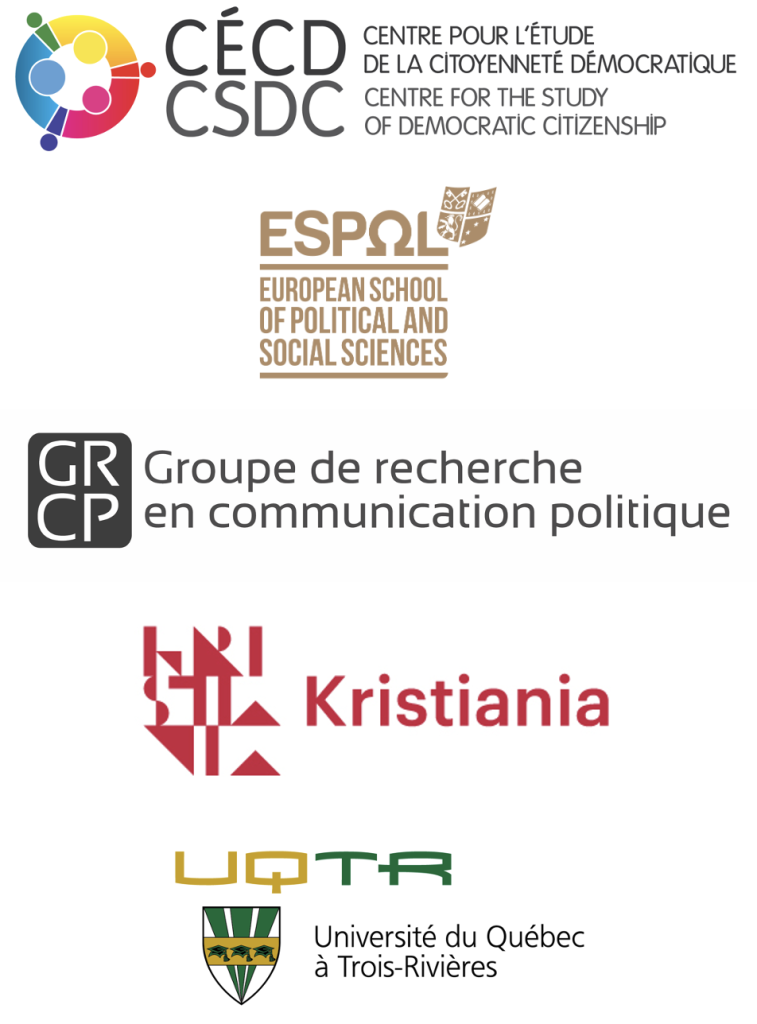
On May 24th, preceding the 73rd annual ICA conference, yours truly in collaboration with Shelley Boulianne and Mireille Lalancette will arrange the ICA-affiliated “Comparative Digital Political Communication: Comparisons across Countries, Platforms, and Time” preconference. Information on the what, the how and the when follows below:
Comparative Digital Political Communication:
Comparisons across Countries, Platforms, and Time
ICA Preconference for the Political Communication Division
Wednesday, 24 May, 2023
For over a decade and in several countries and contexts, digital communication technologies such as social media have grown increasingly important in political processes like elections, public consultations, and advocacy work done by civil society actors. In addition, these technologies are important for facilitating and documenting everyday interaction among citizens across the globe as well as between political actors/groups and their supporters. Indeed, our current “fourth age” (Bennett & Pfetsch, 2018; Magin et al., 2016) or “fourth era” (Klinger & Koc-Michalska, 2022; Roemmele & Gibson, 2020) of political communication is often defined by the characteristics of various digital tools and approaches. Research on these themes have flourished, giving rise to a series of different theoretical viewpoints, methodological perspectives, and empirical starting points.
While the diversity of digital political communication research is largely beneficial, recent work has pointed out a lack of comparative approaches in dealing with issues like online political campaigning and the political participation of citizens (Boulianne, 2020; Esser & Pfetsch, 2020; Jacobs et al., 2020; Kreiss et al., 2017), mirroring tendencies discernable in the broader field of media and communication studies (Liu et al., 2020; Matassi & Boczkowski, 2021).
This preconference seeks contributions that feature one or more comparative aspects as distinctive characteristics of their respective study designs. We ask for contributions relating to comparative aspects including, but not limited to:
- Country comparison: As political and media systems differ across countries and contexts, so can we expect differences with regards to digital political communication across countries and contexts (Vaccari & Valeriani, 2021). Submissions drawing on this variety of comparison could, for instance, employ most-similar or most-different designs (Seawright & Gerring, 2008) in order to tease out differences and similarities across borders.
- Platform comparison: Social media platforms such as Facebook and Twitter have different affordances or architectures (Bossetta, 2018) and feature different user groups making it necessary to adapt communication efforts to fit with each specific platform. We invite contributions to engage with the different ways that platforms are used for political communication purposes.
- Time period comparison: As both political practices and digital communication technologies are constantly evolving and changing (Boulianne, 2020), longitudinal insights are necessary to further our knowledge (Larsson, 2021). We invite submissions that deal with overtime developments, for instance during one or several election years in one or more specific contexts.
Select abstracts from the preconference will be invited to submit full papers to a special issue of Social Science Computer Review.
Submission process
Please submit abstracts (250 words) using this form
The abstract submissions are due January 25. In the preconference abstract submission form, please be prepared to answer questions about which of the three comparison approaches are used (country, platform, time), the identity of all co-authors on your paper, and demographic questions about the corresponding/presenting author to help the organizers ensure diversity in presentations (junior vs. senior scholars, gender, country, racial and ethnic identity, etc.).
Preconference decisions will be made by the end of February and we will require registration for the preconference by March 31 to draft the program and confirm catering (two coffee breaks, lunch).
Venue and practical details
The preconference will be held at Toronto Metropolitan (formerly, Ryerson University). The preconference is located less than 1.6 km/1 mile away from Sheraton Centre Toronto (ICA conference hotel). Public transportation is available; otherwise, the venue is less than a 20 minute walk from the hotel. At this time, we do not plan to have an online component, but we reserve the right to alter plans if necessary.
Questions? Please send all questions to 2023icapolcommpreconf@gmail.com.
There is no registration fee for this preconference due to the generous support of the following sponsors and organizers, presented in alphabetical order:
– Centre for the study of Democratic Citizenship
– Groupe de recherche en communication politique at Université Laval
– Fonds d’aide à la recherche (FAR) Grant, L’Université du Québec à Trois-Rivières.
Organizers
Anders Olof Larsson, Kristiania University College, Oslo, Norway.
Shelley Boulianne, ESPOL – Université Catholique de Lille, France
Mireille Lalancette, Université du Québec à Trois-Rivières, Trois-Rivières (Québec), Canada.
References
Bennett, W. L., & Pfetsch, B. (2018). Rethinking Political Communication in a Time of Disrupted Public Spheres. Journal of Communication, 68(2), 243-253. https://doi.org/10.1093/joc/jqx017
Bossetta, M. (2018). The digital architectures of social media: Comparing political campaigning on Facebook, Twitter, Instagram, and Snapchat in the 2016 U.S. election. Journalism & Mass Communication Quarterly, 95(2), 471–496. https://doi.org/10.1177/1077699018763307
Boulianne, S. (2020). Twenty years of digital media effects on civic and political participation. Communication Research, 47(7), 947-966. https://doi.org/10.1177/0093650218808186
Esser, F., & Pfetsch, B. (2020). Political Communication. In D. Caramani (Ed.), Comparative Politics. Fifth edition (pp. 336-358). Oxford University Press.
Jacobs, K., Sandberg, L., & Spierings, N. (2020). Twitter and Facebook: Populists’ double-barreled gun? New Media & Society, 22(4), 611-633.https://doi.org/10.1177/1461444819893991
Klinger, U., & Koc-Michalska, K. (2022). Populism as a communication phenomenon: A cross-sectional and longitudinal comparison of political campaigning on Facebook. Mots(128). https://doi.org/10.4000/mots.29685
Kreiss, D., Lawrence, R. G., & McGregor, S. C. (2017). In Their Own Words: Political Practitioner Accounts of Candidates, Audiences, Affordances, Genres, and Timing in Strategic Social Media Use. Political Communication, 35(1), 8-31. https://doi.org/10.1080/10584609.2017.1334727
Larsson, A. O. (2021). ‘Win a sweater with the PM’S face on it’ – A longitudinal study of Norwegian party Facebook engagement strategies. Information, Communication & Society, 1-20.
Liu, J., Liu, X., & Jensen, K. B. (2020). Comparative Media Studies in the Digital Age: Taking Stock, Looking Ahead — Introduction [comparative research, digital media, Internet, context, mobility, context-aware comparative communication studies]. International Journal of Communication, 14, 5754–5760. https://ijoc.org/index.php/ijoc/article/view/14548
Magin, M., Podschuweit, N., Haßler, J., & Russmann, U. (2016). Campaigning in the fourth age of political communication. A multi-method study on the use of Facebook by German and Austrian parties in the 2013 national election campaigns. Information, Communication & Society, 20(11), 1698-1719. https://doi.org/10.1080/1369118x.2016.1254269
Matassi, M., & Boczkowski, P. (2021). An Agenda for Comparative Social Media Studies: The Value of Understanding Practices From Cross-National, Cross-Media, and Cross-Platform Perspectives [social media, comparative studies, theory building, cross-national, cross-media, cross-platform, history, language]. International Journal of Communication, 15.
Roemmele, A., & Gibson, R. (2020). Scientific and subversive: The two faces of the fourth era of political campaigning. New Media & Society, 22(4), 595-610. https://doi.org/10.1177/1461444819893979
Seawright, J., & Gerring, J. (2008). Case selection techniques in case study research: A menu of qualitative and quantitative options. Political Research Quarterly, 61(2), 294-308.
Vaccari, C., & Valeriani, A. (2021). Outside the bubble: Social media and political participation in western democracies. Oxford University Press.
